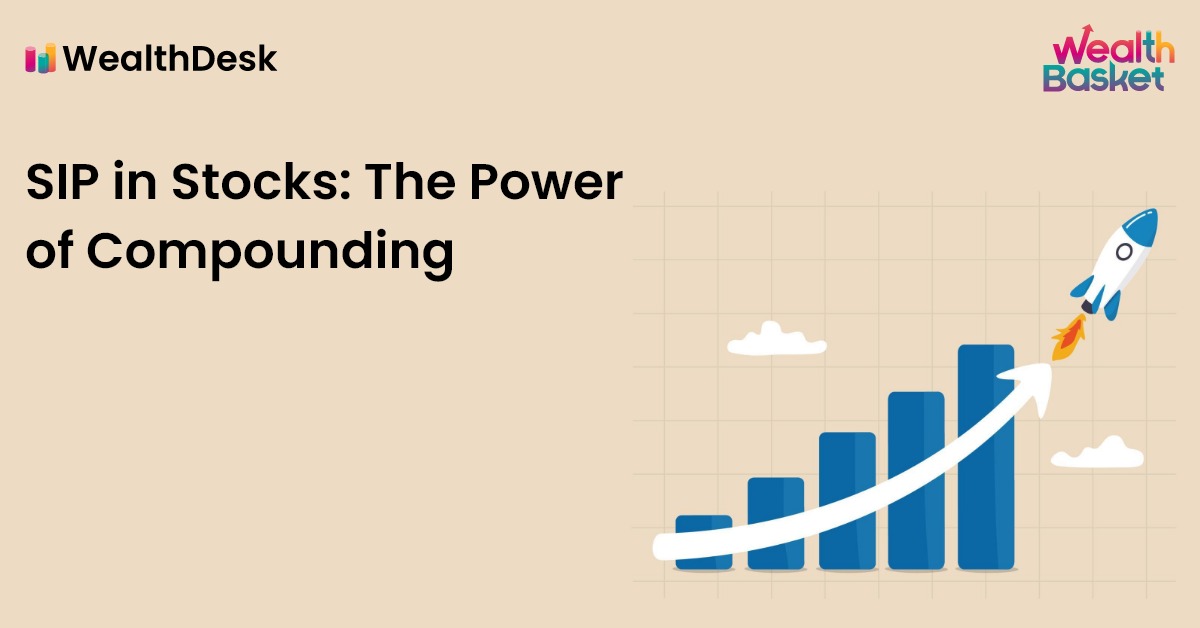“SIP toh risk-free investment hota hai” We all have that one SIP enthusiast friend who thinks SIP is a risk-free investment, and to a certain extent, it is a half-truth. Systematic Investment Plans (SIP) were initially started for mutual funds that regularly allow you to invest a fixed amount. However, you can also invest in stocks using SIP mode.
While lumpsum investment has its benefits and risks, the disadvantages of SIP are no less. This blog will deep dive into four risks involved in SIP investment to help you make your investment decision better.
Market Volatility
The unpredictable stock market is rapidly changing while also having higher price volatility. The constant fluctuations in the price are mainly affected by the economic conditions, interest rate fluctuations, changes in the foreign exchange, regulatory decisions, major policy reforms, etc.
Although mutual funds are bought and sold based on their Net Assets Value (NAV), the NAV also gets affected by the market fluctuations. Since mutual funds also invest a part of their portfolio capital in equity, price volatility remains moderate to high, one of the significant risk factors in SIP investment.
Risk of Portfolio Underperformance
Once you start investing your money through SIP, there is no guarantee that the money will keep growing. The portfolio’s underperformance could adversely affect the value of your investment and may result in losses.
There is no best way to invest in SIP as you cannot accurately predict what will happen, and you cannot time the market. If a mutual fund is consistently performing below its benchmark, then your investment might be at risk.
Liquidity Risk
Typically, SIPs allow you to withdraw money at your convenience with exit load fees sometimes. However, certain SIPs, such as equity-linked mutual fund SIPs, would require you to hold the units of the mutual fund until a certain number of years.
The delay in getting your investment redeemed and the lock-in period requirement create liquidity risk. You may also find it challenging to sell your mutual fund units to other investors, and that ultimately creates a liquidity risk. The liquidity risk blocks your money until the lock-in period is not over.
Negative or Low Return in the Short-term
SIPs offer better and higher returns when you stay invested for longer-term. Many investors try to make better returns out of their short-term investments. However, SIPs prove to be effectively generating returns for you only if you stay invested.
Certain mutual funds generate negative or negligible returns in the first three months, six months, one year or three years. Hence, the risk of investing money in the short term could generate losses for you as the portfolio value also decreases.
Final Thoughts
Although SIP in mutual funds is the most convenient and safer than the other equity investments (stocks, equity-linked savings schemes, and ETFs), it has disadvantages, too. The risks involved in SIPs, therefore, must not be overlooked. Before investing your money into a SIP, risk and return analysis will help you align your investment goals with the expected SIP returns.
At WealthDesk, we can help you invest your money into portfolios of stocks and ETFs specifically designed by SEBI approved professionals.
FAQs
Mutual fund SIP is safer than equity investment, and it is mainly because your returns are calculated based on the average NAV of your SIPs throughout the investment tenure. The average NAV significantly reduces the chances of losing money due to market fluctuations.
Mutual funds invest your money in a portfolio of securities, including stocks, bonds, FDs, and other commodities. As the underlying value of these investments declines, the value of your mutual fund will also decline, and you may lose your money.
SIPs invest in various securities, including stocks. Since stocks are highly volatile, your SIP is also not 100% risk-free. Investing at regular intervals through SIP may reduce the intensity of losing your money if the market is unfavorable.
High-risk mutual funds invest in such securities that have the potential to generate higher returns. However, these securities are highly volatile to market conditions, and the higher the returns, the higher the risks apply to every investment instrument.
When you redeem your mutual funds, you will pay capital gain tax if your investment makes profits. In case of loss, your capital loss is carried forward to the next year (maximum up to eight years) to set off against any other gain made in other investments. Short-term capital gain tax is charged at 15% whereas long-term at 20% with indexation.


















